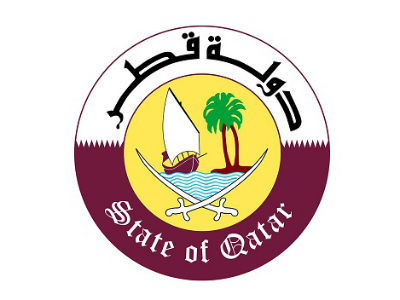Qatar Reiterates Calls for Maintaining International Peace and Security, Protecting Humanity from Deadly Weapons

Geneva / Information Office / February 23
The State of Qatar affirmed its keenness and commitment to support disarmament negotiations and implement all its obligations in this field, and to continue its permanent positions and calls to maintain international peace and security and protect humanity from the devastating effects of deadly weapons.
This came in the statement of the State of Qatar delivered today by HE Secretary General of the Ministry of Foreign Affairs Dr. Ahmed bin Hassan Al Hammadi at the high-level segment of the Conference on Disarmament in Geneva.
His Excellency stressed that the State of Qatar pursues a consistent and clear national policy on disarmament issues based on its commitment to its responsibilities towards maintaining international peace and security, and in its belief in the need to support all efforts aimed at disarmament in the world.
In this regard, His Excellency referred to its accession to several major international agreements in the field of disarmament, and the establishment of the National Committee for the Prohibition of Weapons in 2004, which plays an important role in providing advice to the relevant government agencies, participating in developing and updating national legislation related to weapons of mass destruction and working to achieve the goals in the relevant international conventions that the state has acceded to, and the preparation and implementation of programs to spread awareness about the dimensions of disarmament, and the organization of training courses in cooperation with Doha Regional Center for training on agreements related to weapons of mass destruction and concerned international organizations, as well as hosting many conferences and seminars related to the disarmament topics.
His Excellency said that the issue of disarmament is primarily a humanitarian issue related to the protection of people and plays a decisive role in preventing crises and armed conflicts and contributes to solving them through political dialogue and negotiations instead of using weapons. Accordingly, it is not considered an option, but rather a necessity, the results of which benefit everyone and contribute to building a safer and more secure world, he said.
His Excellency added that the weapons of mass destruction and nuclear weapons remain a major concern for humanity and threaten international peace and security and sustainable development, and the international community must increase attention to disarmament issues to preserve the achievements that have been made, to identify areas in which progress can be made, and to seek compromise solutions.
In this regard, His Excellency affirmed that the State of Qatar welcomes the agreement between the United States of America and the Russian Federation to extend the validity of the Treaty on the Limitation of Strategic Offensive Arms (New START), and said that it is a correct step towards limiting and getting rid of the nuclear armament cycle.
His Excellency said that the Middle East region faces an important security dilemma represented by the presence and use of weapons of mass destruction, which constitutes a real threat that must be addressed and the initiatives to establish a free zone of nuclear weapons and other weapons of mass destruction are among the important attempts to address these concerns at the regional and international level, adding that its success will contribute to achieving security, stability, peace and sustainable development, as well as enhancing the credibility of the Treaty on the Non-Proliferation of Nuclear Weapons, especially in light of the existing regional and international tensions.
In this regard, he affirmed the State of Qatar's full support for holding a new session of the United Nations conference on establishing a free zone of nuclear weapons and other weapons of mass destruction in the Middle East during this year, looking forward to the holding of the tenth review conference of the Treaty on the Non-Proliferation of Nuclear Weapons in April 2021.
His Excellency called on the international community, especially the countries sponsoring the 1995 resolution, which was mainly related to the endless extension of the Treaty on the Non-Proliferation of Nuclear Weapons, to fulfill their responsibilities and duties towards implementing the resolutions of the 2010 conference, and other relevant decisions.
His Excellency stressed the State of Qatar's affirmation of the legitimate right of all countries, especially developing countries, to the peaceful use of nuclear energy, in accordance with the standards and procedures of the International Atomic Energy Agency and under its supervision and in line with the comprehensive safeguards system.
His Excellency underlined the State of Qatar's belief in the importance of the Conference on Disarmament as it is the only multilateral negotiating forum to discuss disarmament issues, and calls on all member states to show flexibility and political will in order to end the stalemate that afflicts the conference and reach a balanced and comprehensive program of work that takes into account the security concerns of all states.
His Excellency emphasized that it is time for the Conference on Disarmament to review and expand its membership to be more representative, in line with what was stipulated in the rules of procedure.
In this regard, His Excellency reaffirmed the State of Qatar's desire to join the Conference on Disarmament, as the application to join the Conference Secretariat was sent in June 2012, and added that Qatar hopes that real progress will be made in this issue.
His Excellency expressed his pleasure at joining this valuable session, hoping that the work of this year's conference will be crowned with success and move forward in the process of creating a world free of nuclear weapons, and that the global cooperation and solidarity to confront the Coronavirus (Covid-19) and the challenges that have resulted from it will be considered as a model for continuing to pursue the multilateral approach to the issue of nuclear disarmament.

